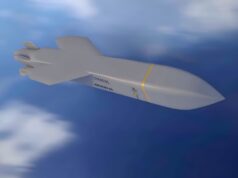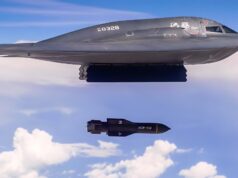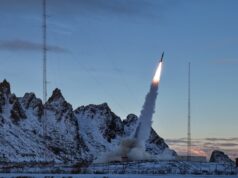Edinburgh-based Skyrora successfully launched its Skylark Nano rocket from the Shetland Islands on Saturday, the 13th of June.
Skyrora plans to launch from one of the three proposed spaceports in Scotland and commercially launching from Shetland in the future is a potential option for them.
Reaching an altitude of six kilometres, this marked the third time the 2 metre (6.5ft) projectile took to the skies.
According to the firm, the launch was completed for educational purposes, collecting meteorological data, measuring wind profiles, analysing the vehicles trajectory and providing critical training in support of Skyrora’s future plans.
“Skyrora invited local journalists to attend the launch and to be apart of the education and learning process. All social distancing measures were met during the launch days.”
Robin Hague, Head of Launch said:
“The launch signifies a vital step towards Skyrora’s ambitions to become the UK’s ‘go-to’ satellite launch provider. We’re ecstatic and truly proud. This is a great success for Skylark Nano, and the Skyrora team in general. Launching from Shetland is very important for us because it’s a potential option for our Skyrora XL orbital commercial launch vehicle. To understand the local launch conditions learning more about the wind profiles in Shetland is critical. Skylark Nano’s third successive launch is testament to the engineers who have worked tirelessly to bring to life a reusable rocket that can provide valuable intelligence for the future of the UK space programme.”
It comes after Skyrora successfully completed a full static fire test on their Skylark-L launch vehicle.
Volodymyr Levykin, CEO, said:
“With this successful launch from Shetland we are further closing the gap to making the UK a rocket launching nation again. For Skyrora this test was all about learning and training. The innovation at Skyrora is enormous, not only are we producing high quality results, but we are doing so with minimum impact to the environment as we strive to develop eco-friendly technology in our launches. At a time of such uncertainty it is important we keep focusing on ingenuity and enterprise. We hope reaching space will inspire the whole nation and show the younger generation what the future of UK Space holds.”
Skylark Nano’s first launch took place in Scotland in summer 2018, with the firm continuing to develop cutting-edge research and technology ahead of its first planned commercial orbital launches.














Well it’s a start I supose, my mate dave has bigger rockets in his shed lol.
Interesting that they are recycling the Skylark name. A British sounding rocket that was used internationally up until quite recently, racking up over 400 launches.
Yeh, it was developed in 1957 and last launch was in 2005. (You just gota love wikipedia 🙂 ).
Question is are they just recycling the name or did they buy the rights to the old Skylark rocket and update it? The latter would be a cost effective way to go, especially given the UK is having to rebuild an entire industry from stratch.
I worked with a couple of fellas who were involved in the early UK space programme, including Black Knight. They retired years ago!
Anyway, good luck Skyrora I bet they are feeling pretty pleased with themselves and so they should!
Cheers CR
Have to walk before you can run.
‘Skylark’….not a particularly space related name. Gets to hundred feet and then twitters like blazes….not very promising.
It’s a development and demonstration rocket, gathering crucial data whilst Skyrora work towards their Skylark L (suborbital) and Skylark XL (orbital) payloads. As dan says above, walk before you run.
Hi Steve, actually I was trying to be humorous, clearly I failed. By the way Steve….is your next film going to be funny? 🙂
Ah okay sorry. You didn’t like Loony Toons?
Yeh, it was okay. I do remember a character called Dennis Pennis who liked to conduct insulting interviews. Steve Martin was walking into the premiere of his latest film when up pops Pennis (as it were), and asks him the above question. Major sense of humour failure on behalf of Mr Martin….all very funny!
IIRC Britain remains the only nation in the world to have had an orbital capability and then stopped funding it. Which is an incredible shame and really shows the short termisim of our post WW2 governments. The long term future of humanity is in space, and perhaps even the next permanent security council memebers could easily be those with manned space programs (or even space colonies).
Added to that Skyrora has some real issues it needs to overcome:
For starters the Geographic location of the Shetland Islands is…. unfortunate for space access. For ideal orbital launches you want to launch as close to the equator as possible, this is why NASA launches from Kennedy in Florida (28* N), ESA from Centre Spacial Guyanis, in Guinea (5* N), and why ROSCOSMOS launches from Baikunur and Vostochny, but in the southern Regions of Russia, but still quite far north and 45*N and 50*N respectively.
Shetland sits on happy 60*N, which makes orbital launches harder and more expensive than any of the above sites. Britain does have Equitorial Colonies that could easily provide better launch sites (Diego Garcia at 5*N and Ascension at 14*S, both with lots off water to their east for suborbital debris to land in), but those carry their own logistical burden (imagine having to choose between a British Launch Provider and eg SpaceEx, when BLP says “We can launch for less, but you have to get your probe to Ascension Island!”).
Lastly of course if we compare Skyrora to SpaceEx, the launch today marks a stage that in SpaceEx Terms would be pre-Falcon 1, which first launched successfully 12 years ago. Assuming Skyrora has the same drive that SpaceEx does (and with the UK not having a COTS style competition I don’t see where their funding will come from), they’ve still got a long way to go. Best of luck to them though.
Hi Dern,
Whilst your point about launching from near the equator is true for Low Earth Orbits high latitude launches give better access to polar and high inclination orbits.
https://space.stackexchange.com/questions/457/is-there-any-advantage-in-launching-spacecraft-from-a-high-latitude-or-why-was
These type of orbit are important for earth observation and navigation systems to give global coverage. So the UK’s high latitude is actually an advantage in this market sector.
Cheers CR
Hopefully the start of something exciting!
This is an important capability to develop – the UK is very good at building small satellites (and components for larger spacecraft) and our space sector is one of the more economically resilient. Coupled with UK built and launched small orbital launchers (as New Zealand has done with the Electron for example), to give us sovereign access to LEO – definitely worth having.